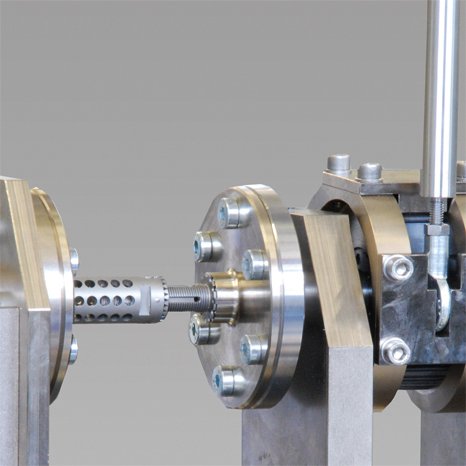Ulm (Germany)-based company ulrich medical has achieved worldwide success with its spinal column implant systems, CT/MRI contrast agent injectors, surgical instruments and tourniquets. The company uses a Zwick GmbH servo-hydraulic testing machine for both quality control and research and development.
An important criterion in the development of a spinal implant is its fatigue limit, as in normal cases implants are inserted and then left in the body. Fatigue tests can be performed using Zwick's Amsler HC25 servo-hydraulic testing machine, allowing the systematic implementation of a multitude of standardized tests (e.g. ISO and ASTM standards and FDA guidances). The user's task is simplified by flexible testXpert Research software and the new testControl II control electronics. Test data acquisition features 24-bit resolution, guaranteeing maximum accuracy over the entire measurement range, while the 10 kHz synchronous data acquisition rate enables representation of high-speed sequences, even at high testing frequencies (up to 400 Hz), regardless of the number of measurement channels.
A typical application for the Zwick Amsler HC25 at ulrich medical's Ulm premises is performing quasi-static and oscillating tests on spinal implants. Pulsating compression and shear tests provide a simplified simulation of the everyday dynamic loading to which the implant is subjected in the body. Regular performance of such tests during the development process ensures a strong, reliable implant.
A multi-axial static or oscillating load can be applied to the implant by means of a torsion device. By using variable pre-load stages, with weights up to 500 N representing the load in the relevant area of the spinal column, axial loading can optionally be applied with superimposed torsion loading.
All results allow data exchange with all contemporary formats (e.g. NI Diadem, ASCII, Excel) via the open interface in testXpert Research. At ulrich medical these results are also used for validation of computer-supported implant simulations.


